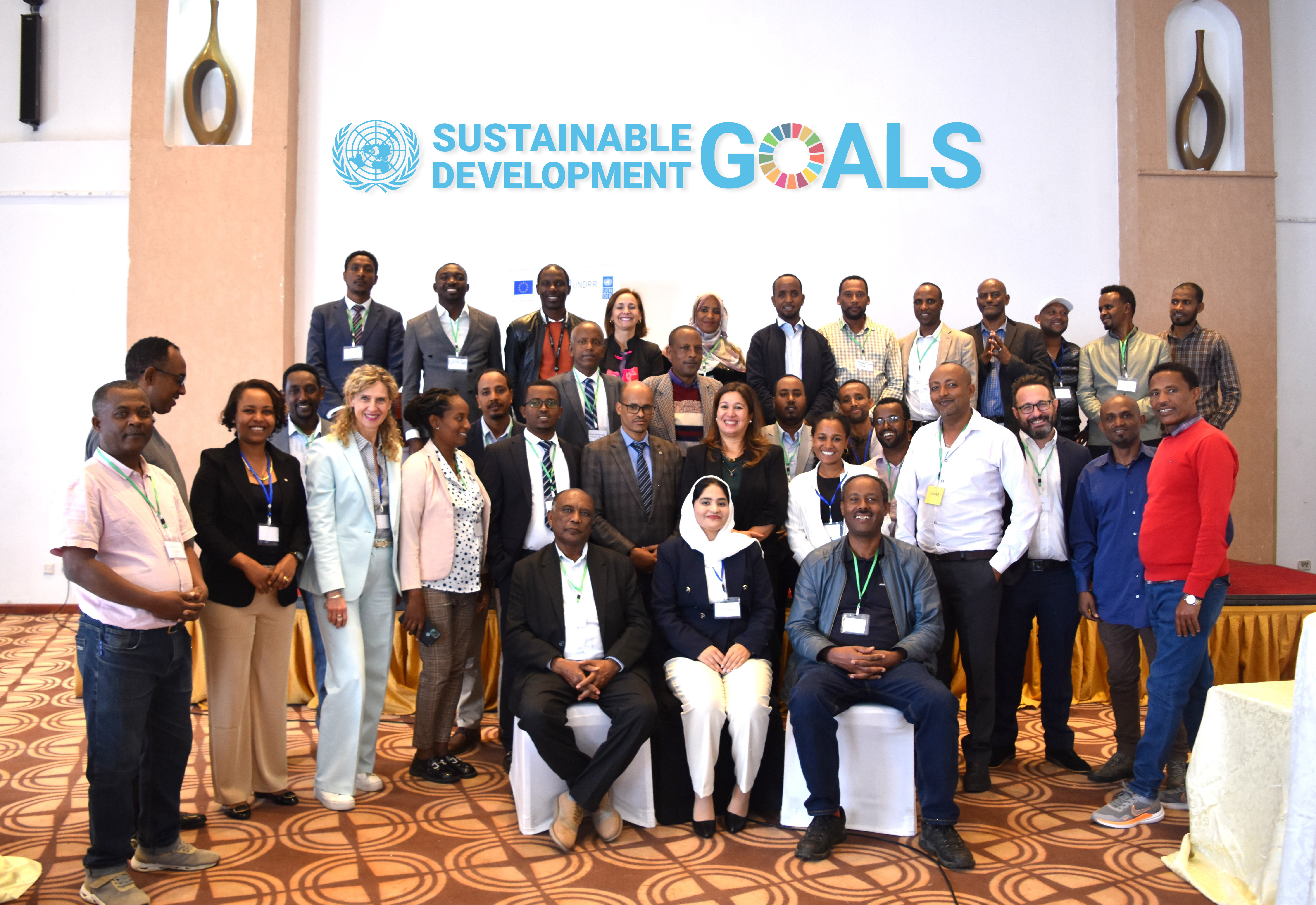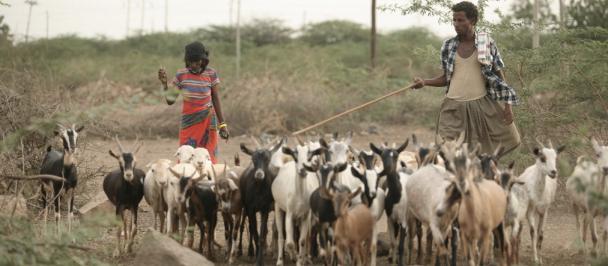A Paradigm Shift towards a Proactive Multi-sector Approach for Sustainable Development
Moving from Managing Crisis to Managing Risks
October 3, 2023

UNDP has partnered with the Government of Ethiopia and the European Union (EU) to kick off an interdisciplinary learning event on Integrating Disaster Risk Reduction and Climate Adaptation into Development.
The event is taking place in Addis Ababa, Ethiopia from 3-6 October 2023, and is financially supported through the EU’s “Strengthening Disaster Risk Governance and Recovery Capacities project’, which is a component of the Intra-African Caribbean and Pacific States (ACP) Natural Disaster Risk Reduction Programme funded under the 11th European Development Fund (EDF).
The knowledge event brought together mid-level government officials from federal and three selected Regional States namely Somali, Amhara and Oromia, representatives from the Ethiopian Disaster Risk Management Commission, the Environment Protection Authority, the Ministry of Finance, the Ministry of Planning and Development, and other sectors such as the Ministry of Agriculture, Ministry of Urban & Infrastructure, Ministry of Water and Energy, the Addis Ababa University.
This learning forum seeks to build capacities for risk-informed development by increasing understanding among decision-makers of the links between disaster risk reduction and climate change adaptation and how to comprehensively and cohesively integrate these two practices into the development agenda to ensure resilience for sustainability.
It further guides participants on how to organize the journey towards risk-informed development in an interdisciplinary and multi-sector manner, which eventually will expand to sectors, spaces and stakeholders in the country over time.
In his opening remarks, Deputy Commissioner Nasibu Yasin of the Ethiopian Disaster Risk Management Commission said “The realization of sustainable development for Ethiopia hinges on linking development activities and disaster risk management as two sides of the same coin. Sustainable development cannot be attained while climate change-induced disasters continue undermining the economic growth and social progress of the country”.
The Deputy Commissioner further noted that there is no sector which is immune to the impact of natural hazards, many of which are increasing in frequency and intensity due to the impact of climate change and many other factors.
“Given the country's vision of building a resilient society and country, integrating disaster risk reduction and climate adaption into development plans and programmes is the best approach in reducing disaster and climate risk and its effect. Thus, this learning forum is one of the platforms worth participating in to learn and share experiences, said Deputy Commissioner Nasibu.
Ms. Charu Bist, UNDP Ethiopia’s Deputy Resident Representative for Programmes, pointed out that the problem of risk management and development is closely linked, and climate change has only worsened the situation.
She further explained that “In 2022 alone, the economic loss from disasters worldwide came to around 300 billion U.S. dollars, and for Africa, it is estimated that, on average, the region is expected to annually lose from 36 to 55 billion dollars from 2022 to 2030. The estimated adaptation finance needs are of similar magnitude”.
Ms Charu further stressed the need for a new vision for development based on resilience building, the need for increased leadership commitment; and the need for working together on integrated approaches to disaster risk management, climate change adaptation, and development.
The learning forum included presentations, panel discussions, group activities, and hands-on activities that allowed participants to draw lessons on integrating disaster risk reduction and climate change adaptation in the context of risk-informed development. Participants from FAO, UN-Habitat and IGAD facilitated sector-specific sessions.

 Locations
Locations
